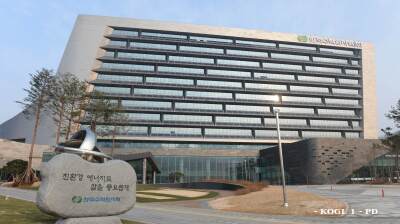Russia’s largest petrochemicals producer Sibur aims to complete massive growth plans without additional emissions, according to a comprehensive report on results and sustainability in 2020.
The company plans to keep greenhouse gas emissions flat through a combination of renewable energy, carbon offsets, storage and technology across its business — even as it plans to build the world’s largest basic polymer plant in the Russian Far East at Amur, near the Chinese border, according to the report. Sibur has already deployed solar power at one of its units and plans to explore additional generation.
Sibur has been a leader in ESG in Russia, where corporates integrated into international financial structures tend to lead the way.
“We are successfully transitioning to a strategy and management system fully based on ESG principles, which will allow Sibur to develop as one of the most responsible and sustainable companies in the industry in the interests of all stakeholders,” Chief Executive Dmitry Konov said in release with the report, the contents of which reveal the company’s progress and represent an important step in implementation, he said.
The concern was among Russia’s first to dive into sustainability-linked borrowing. Earlier this year it took out a $50 million loan from Unicredit, where the interest rate is linked to Sibur’s performance on sustainability targets. The sum may not be large in context of the company’s annual spending, yet it shows willingness to be an early mover with ESG-related instruments.
Sibur’s business history has consisted of development in parallel with emissions reduction. The company began as an aggregator of associated petroleum gas, a byproduct of drilling for oil which had previously been burned off. Over the last decade Sibur, which processes that gas and feeds it into national grids, has been increasingly using that feedstock to create higher value polymers.
The company ramped up to full capacity last year at its recent mega project, ZapSibNeftekhim, in Tobolsk, Siberia. And now it has set its sights on again increasing polymer production with a new plant in the Far East.
Turning gas molecules into polymers keeps them from being ignited, burned and contributing to global warming, at least initially. It should be noted that natural gas is considered by many a transition fuel, as it is cleaner than oil and coal and can be blended with clean hydrogen or carbon storage, supporting a transition to electric cars. That said, the creation of plastics comes with a whole different set of circular economy initiatives. Sibur seeks a leadership role here as well, according to the report.
The company has a project underway for a line of green granule PET production that will integrate 25% recycled material into its content. It has additionally put focus on research and development for advances in recycling processes which can increase yields.
This comes as Russia has started to get more serious about waste collection and sorting that enables the process, which globally still requires large efficiency gains. Sibur has sought to contribute to collection and trade in secondary polymers and other materials via the Reaktor platform. The platform is a centralized online market place for buying and selling recyclable materials that aims to improve B2B sales and practices and allow for greater scale with future volume.
Plastics are to some degree a victim of their own success in delivering cost-effective solutions in packaging, transport and medicine, especially in the pandemic era. Recycling technology, collection and processes need to and should catch up to the huge popularity of plastics among consumers. But success will take time and coordinated action.
Sibur’s efforts in developing recycling and limiting emissions are welcome, especially in a period where it is going through a period of major growth. Progress is possible without damage to the environment. That’s Sibur’s plan, and there is no reason it shouldn’t be able to follow through.
-
This article first appeared here in New Economy Observer (NEO), a digital publication covering the intersection between finance and social responsibility, with a special focus on emerging markets. IT offer news and analysis on major issues shaping the new global economy, including climate change and renewable energy, sustainable development, e-commerce and tech innovation, and the future of work.
bneGREEN

Kyrgyzstan says neighbours “upset” by country’s lack of water
“This year we were supposed to overcome shortages, but instead, they have intensified,” deputy head of cabinet tells Uzbekistan and Kazakhstan.

EXPLAINER: What is the EU’s CBAM and how will it affect global trade from 2026?
The European Union’s Carbon Border Adjustment Mechanism (CBAM) will enter its full operational phase on January 1, 2026, marking a major shift in global climate and trade policy.

Iran faces critical water crisis after driest year in five decades
Iran faces critical water crisis after driest year in five decades with 40% nationwide rainfall drop.

Global renewables to double by 2030, but IEA warns momentum must accelerate
Global renewable energy capacity is on course to double by 2030, reaching 4,600 GW—comparable to the current combined total of China, the European Union and Japan—according to the International Energy Agency’s Renewables 2025 report.




